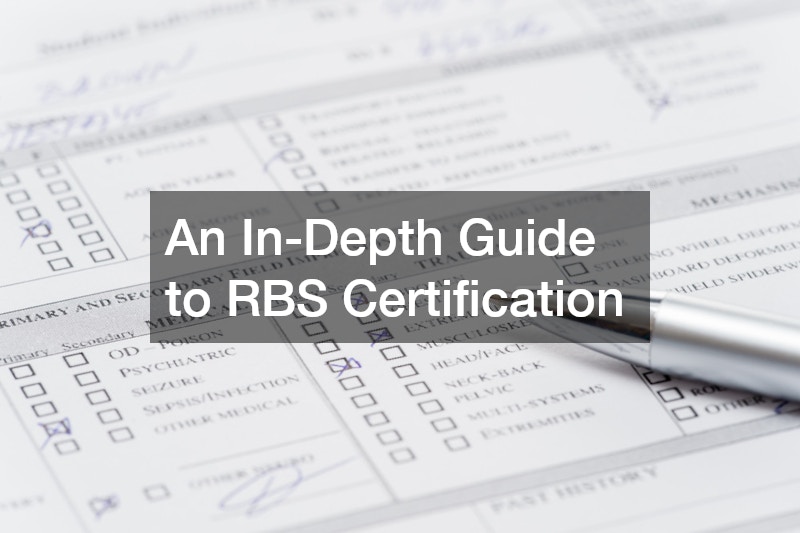
RBS certification, or Responsible Beverage Service certification, is becoming increasingly important in today’s hospitality industry. As more states and municipalities require alcohol servers to be certified, understanding what this certification entails has never been more crucial. This article aims to provide a comprehensive guide on the significance, requirements, and benefits of obtaining RBS certification.
The primary aim of RBS certification is to ensure that those serving alcohol are well-versed in responsible service practices. This certification equips them with the necessary skills to identify fake IDs, manage challenging situations, and recognize when a patron has been overserved.
By doing so, it plays a pivotal role in promoting public safety and reducing alcohol-related incidents.
The growing trend of mandating RBS certification is a response to increasing concerns around alcohol-related harm. Various studies have indicated that responsible beverage service training can significantly reduce instances of drunk driving and alcohol-related offenses. As such, many employers now view RBS certification not only as a compliance requirement but also as an integral part of their commitment to community safety and welfare.
The Process of Obtaining RBS Certification
Obtaining RBS certification usually involves enrolling in a recognized training program, either online or in-person. These programs typically cover a wide range of topics, including state-specific alcohol laws, recognizing signs of intoxication, and strategies for intervention in potentially difficult situations. Following completion of the training, individuals are often required to pass a certification exam to demonstrate their understanding and competency.
It’s worth mentioning that the specific requirements for obtaining RBS certification can vary depending on state and local regulations. In some areas, certification needs to be renewed periodically, requiring ongoing education to ensure servers are updated on any legislative changes. This continued commitment to education ensures that RBS-certified individuals are well-prepared to navigate the dynamic landscape of responsible beverage service.
Benefits of RBS Certification
RBS certification brings numerous benefits not only to individuals but also to employers and the community. Certified individuals often have a competitive edge in the job market, as employers value their demonstrated commitment to responsible alcohol service. Moreover, many establishments seek certified staff to minimize liability and ensure compliance with legal requirements.
Employers benefit from having RBS-certified staff as it can lead to fewer alcohol-related incidents and a reduction in potential legal complications. This not only protects the reputation of the business but also fosters a safer environment for patrons and staff alike. Additionally, establishments may qualify for insurance discounts, translating to direct financial benefits.
On a broader scale, RBS certification contributes to the well-being of the community by reducing the incidence of alcohol-related harm. When alcohol servers are trained to recognize and appropriately manage situations involving intoxication, the risk of accidents and disturbances decreases. This enhanced level of responsibility helps build trust between businesses and the communities they serve.
Challenges and Considerations
Despite its benefits, RBS certification does come with a set of challenges for both individuals and businesses. One of the primary challenges is ensuring that all staff remain up-to-date with their certification requirements amidst busy work schedules. Additionally, the costs associated with training programs and certification exams can be a burden, particularly for smaller establishments.
From an organizational perspective, incorporating a structured training program can require significant time and resources. Employers need to establish systems to track certification statuses, schedule renewals, and organize group training sessions, if necessary. Additionally, there is a need to instill a culture where responsible beverage service is seen as an integral part of all operations rather than a box-ticking exercise.
For individuals, balancing the demands of the job with the responsibility of maintaining RBS certification can be challenging. Time management becomes crucial, requiring individuals to plan effectively to accommodate both work and training obligations. Nevertheless, with careful planning and employer support, these challenges can be mitigated, allowing for the seamless integration of certification into routine practices.
Conclusion
In conclusion, RBS certification represents a vital component in the modern hospitality industry, aligning with broader objectives of public safety and responsible alcohol service. The process of becoming certified, while demanding, offers invaluable knowledge and skills that benefit both the individual and the community. As RBS certification becomes more widespread, its impact on reducing alcohol-related incidents continues to grow.
Individuals looking to enter or progress in the hospitality industry should consider obtaining RBS certification as a strategic career move. By enhancing their professional credentials and committing to responsible service practices, they position themselves as invaluable assets to prospective employers. Ultimately, RBS certification fosters a healthier, safer, and more sustainable service environment for all stakeholders.
.


